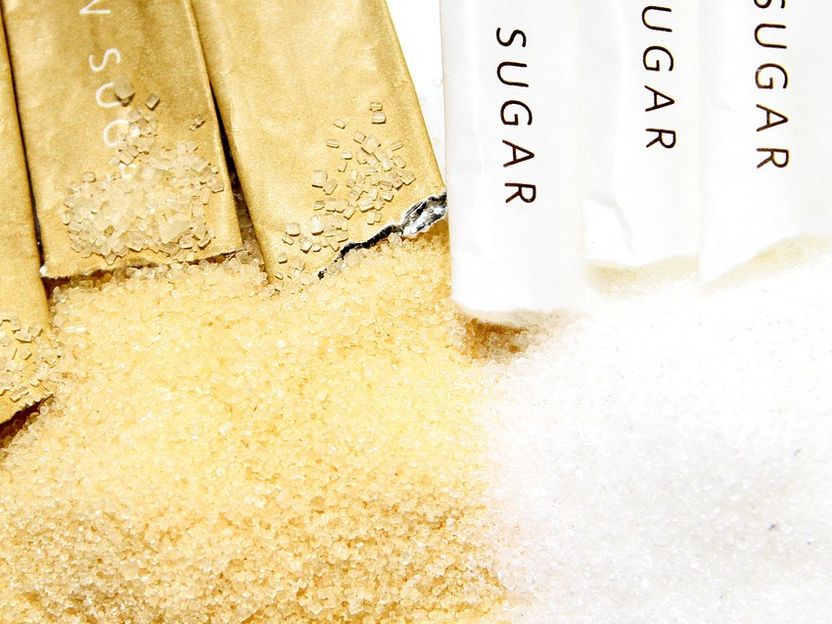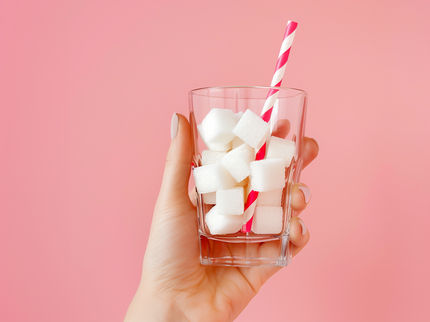Saying goodbye to sugar: A difficult balancing act
Advertisement
Too much sugar is unhealthy - everyone knows that. More and more food producers are therefore trying to reduce the sugar content of their products. That's not without risk. Because most consumers are not prepared to make concessions on taste.
Whether butter biscuits, fruit yoghurt or breakfast muesli: With more and more products, major brand manufacturers are trying to reduce the sugar content. At least a little bit.
In August alone, two of the largest suppliers of dairy products on the German market announced new recipes that do without additional sugar in whole or in part. Matthias Rensch of Deutsches Milchkontor promised that this year and next year the company would "gradually reduce the added sugar in the products of its most important brand Milram so that consumers will get used to less sugar". The company makes no secret of its motives. "More and more consumers are paying attention to a health-conscious diet and are increasingly turning to products with as little sugar as possible.
Competitor Arla is currently launching a fruit yoghurt on the market that does not contain any added sugar or other additives. According to the company, it contains only half as much sugar as "normal" fruit yoghurt. Reducing the list of ingredients to two products - fruit and yoghurt - sounds simple, but it is not, emphasizes Arla Mühleisen, head of Germany. "Fruit yoghurts without added sugar taste sour quickly, and it is also not easy to achieve a pleasant consistency and beautiful colour without additives.
The step is also not without risk: "The taste is delicious, but it is a little different. Moreover, the products are a little more expensive," says Mühleisen, hoping that consumers will follow suit. There is a simple reason why dairy companies are prepared to take the risk: According to the market research company Nielsen, sales of sweetened fruit yoghurts have slumped by around 20 percent since 2012.
Other brand manufacturers are also experimenting with fewer sugars - partly by changing their conventional recipes, partly as additional product variants. Danone, for example, has reduced the sugar content of its Actimel yoghurt drink by 17 percent since its market launch. Nestlé reduced the added sugar in its KitKat bars by around 8 percent.
Bahlsen now offers a Leibniz biscuit variant with 30 percent less sugar. Dr. Oetker wooed the health-conscious with less sweetened versions of his cereal brand Vitalis. Even the confectionery manufacturer Haribo launched new fruit gums with 30 percent less sugar a few months ago.
Brand manufacturers are under pressure - because of the public debate about the harmfulness of sugar, but also because the major retail chains with their own brands have taken on a pioneering role in sugar reduction. The retail giant Rewe alone plans to introduce new sugar-reduced recipes for around 100 private label products this year. Edeka started reducing the sugar content of numerous products three years ago, usually by ten percent, and often by more than 20 percent. Lidl and Aldi are also working on their recipes.
But there is a problem for everyone involved: the consumer. According to a recent study by the German Agricultural Society (DLG), almost 60 percent of consumers are deliberately trying to reduce their sugar consumption. But only one in five consumers is prepared to accept a loss of taste. Anyone who reduces the sugar content of their products too much runs the risk of losing customers.
The nutrition expert Armin Valet of Verbraucherzentrale Hamburg sees the commitment of the retail chains with mixed feelings. In principle, the efforts of the manufacturers are of course to be welcomed. But one has to check carefully whether something really comes out at the end of the day. After all, even a substantial reduction in the sugar content of a calorie bomb does not yet make a healthy snack: "If you put 20 percent less sugar into a high-sugar cereal, it won't become much healthier," he says. Valet therefore advocates the introduction of a traffic light labelling system for foodstuffs that enables consumers to classify the sugar content of a product at first glance.
Faced with numerous hurdles, some are now hoping for a miracle of science to solve the sugar problem. The consumer goods giant Nestlé recently presented a laboratory-developed "porous sugar" that dissolves faster in the mouth and tastes sweeter. Nestlé hopes this will reduce the sugar content of its products by up to 40 percent.

feelphotoz/ Pixabay
Cologne-based sugar manufacturer Pfeiffer & Langen (diamond sugar) goes one step further. He is working on a "sugar without calories" - the so-called allulose. The aim is to change the molecular structure of beet sugar in such a way that the sugar can still be tasted, but the body can no longer process it. It would be every sweet tooth's dream.(dpa)



























































